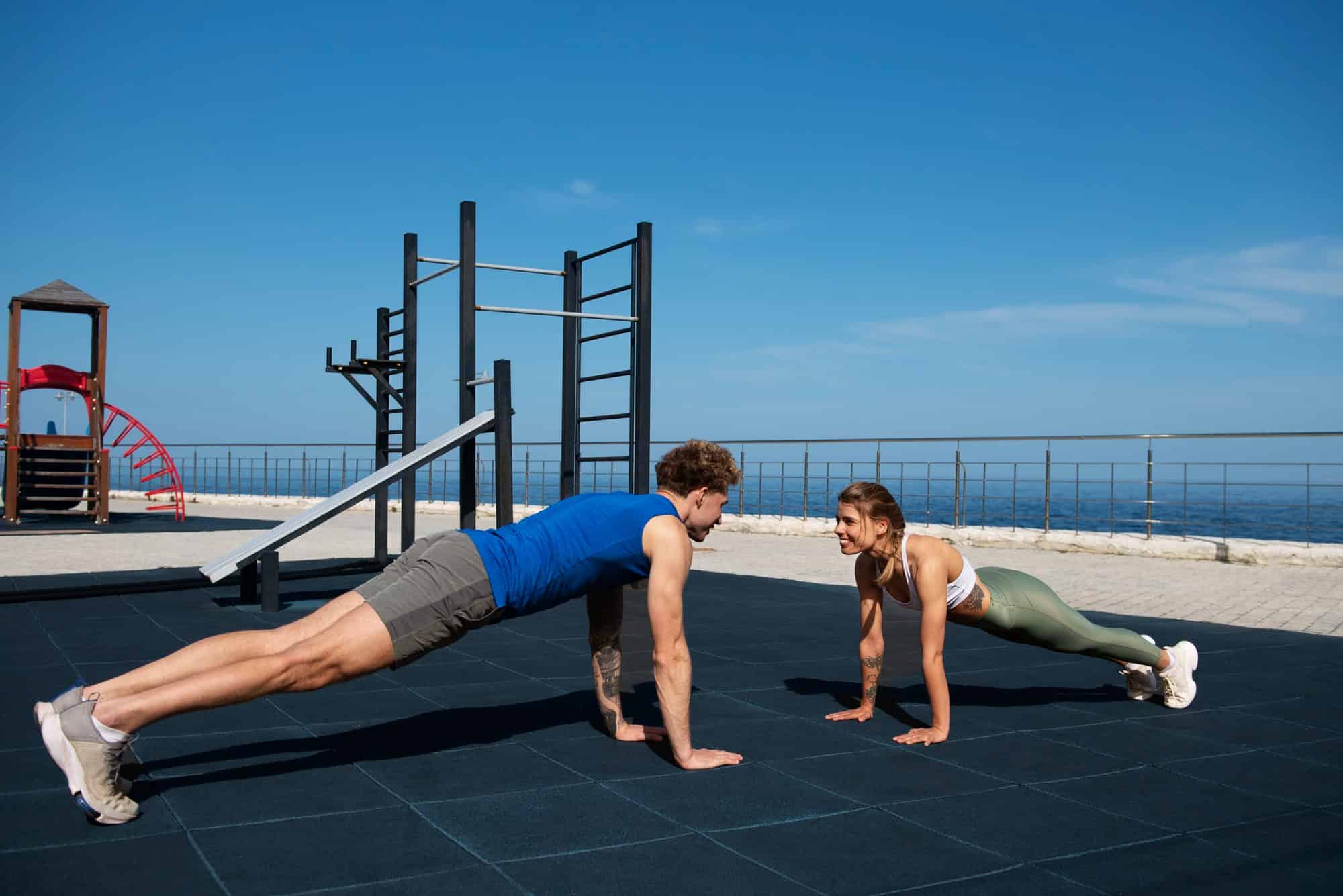Have you ever wondered what it would be like to train like a superhero?
Hybrid athletes and calisthenics athletes each have their own unique training styles that can help you feel strong, fit, and ready for anything.
Right now, we’ll explore what makes each type of training special and help you figure out which one might be the best fit for you.
Get ready to discover a fun and exciting way to reach your fitness goals by understanding hybrid athlete vs. calisthenics athlete:
Related:
Hybrid Athlete vs. Bodybuilder
What Is A Hybrid Athlete?
A hybrid athlete is someone who combines different types of training, like strength and endurance exercises.
They might lift weights and also run or cycle. The goal is to be well-rounded and fit in various ways.
Hybrid training can make you strong and fast, helping you perform well in many activities.
What Is A Calisthenics Athlete?
A calisthenics athlete focuses on bodyweight exercises.
These exercises include push-ups, pull-ups, and squats. Calisthenics aims to build strength and muscle control without using weights.
It’s about mastering movements and improving how your body moves and feels.
Training Methodologies

Let’s take a close look at the training methods for both hybrid and calisthenics athletes:
Hybrid Training Techniques
Hybrid training combines different workouts. For example, you might lift weights one day and run the next.
This method balances strength and endurance. You can also mix in sports like swimming or cycling.
A typical hybrid workout could be lifting weights for 30 minutes and then running for 20 minutes. The variety keeps things interesting and challenging.
Calisthenics Training Techniques
Calisthenics uses your body weight for resistance. Exercises like push-ups, pull-ups, and lunges are common.
As you get stronger, you can make exercises harder by changing angles or adding movements.
For example, progressing from a regular push-up to a one-arm push-up. Calisthenics is great because you need minimal equipment and can do it anywhere.
Physical and Mental Benefits
Listed below are some of the benefits for both hybrid and calisthenics athletes:
Benefits of Hybrid Training
Hybrid training improves overall fitness. It makes you strong and boosts endurance. Being versatile means you can handle different physical challenges.
Whether lifting heavy objects or running a long distance, hybrid training prepares you for it. It also keeps workouts exciting and reduces the risk of getting bored.
Benefits of Calisthenics
Calisthenics builds functional strength. This means strength you use in everyday activities.
It also enhances body control and awareness, making you more agile and coordinated. Because you don’t need much equipment, it’s cost-effective and convenient.
You can stay fit without a gym membership.
Challenges and Considerations

Unsure about the challenges and considerations of being a hybrid athlete or a calisthenics athlete? Here are a few:
Challenges Faced by Hybrid Athletes
Hybrid athletes must balance different types of training. This can be hard because each type has different demands.
Overtraining is a risk if you don’t manage your workouts well. It’s important to have a plan and give yourself enough rest. Time management is also key since hybrid training can be time-consuming.
Challenges Faced by Calisthenics Athletes
Calisthenics athletes might face plateaus, where progress slows down. This can be frustrating.
Since you’re using your body weight, finding ways to increase resistance can be challenging.
Preventing injuries is important, as calisthenics can put a lot of stress on joints and muscles.
Nutrition and Recovery
Now, let’s talk a bit about nutrition and recovery for both the athletes:
Nutrition for Hybrid Athletes
Hybrid athletes need a balanced diet with enough calories to fuel their diverse workouts. Protein is important for muscle repair, while carbs provide energy. Pre and post-workout nutrition helps performance and recovery. Supplements like protein powder or energy gels can also be beneficial.
Nutrition for Calisthenics Athletes
Calisthenics athletes need a good mix of protein, carbs, and fats. Protein helps repair muscles after intense bodyweight exercises. Eating the right foods after workouts aids recovery and muscle growth. Supplements can also support their nutritional needs.
Choosing the Right Path
Don’t know which path to choose? The information below might help:
Assessing Personal Goals and Preferences
Deciding between hybrid and calisthenics training depends on your goals and lifestyle. If you want to be well-rounded and enjoy variety, hybrid training might be for you.
If you prefer bodyweight exercises and minimal equipment, calisthenics could be a better fit.
Think about what you enjoy and what fits best with your daily routine.
Integrating Both Approaches
You don’t have to choose just one. You can combine hybrid and calisthenics training.
For example, lift weights and run on some days, and do bodyweight exercises on others. This mix can provide a balanced and comprehensive fitness routine.
Customize your workouts to keep them exciting and effective.
Final Verdict
So, what’s it going to be?
Are you ready to go with the dynamic and versatile life of a hybrid athlete, combining the best of strength and endurance training?
Or does the minimalist, bodyweight-focused world of calisthenics call your name, promising functional strength and agility without the need for fancy equipment?
The choice is yours, and the best part is that you can mix and match to create a routine that’s perfect for you.



